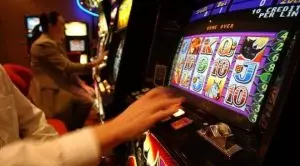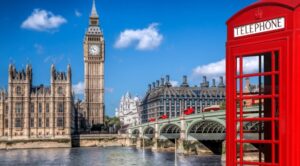 The Victorian branch of the Returned and Services League of Australia (RSL) allotted a meagre $8.4 million for direct public funding despite generating over $163 million in gambling revenue during the last financial year, the clubs’ statements indicate. RSL clubs operate as registered charities whose main objective is to provide welfare for local veterans who have served in the Australian Defence Force. They normally contain bar and dining facilities, although larger venues are also licensed to operate gaming machines.
The Victorian branch of the Returned and Services League of Australia (RSL) allotted a meagre $8.4 million for direct public funding despite generating over $163 million in gambling revenue during the last financial year, the clubs’ statements indicate. RSL clubs operate as registered charities whose main objective is to provide welfare for local veterans who have served in the Australian Defence Force. They normally contain bar and dining facilities, although larger venues are also licensed to operate gaming machines.
Victoria is home to nearly 300 such clubs, 50 of which are authorised to conduct gaming on their premises. Local legislation requires the clubs to allot at least 8.3% of their gambling revenue for direct community funding, such as donations, in order to receive gaming tax concessions. However, recent club statements issued to the Victorian Gambling and Casino Control Commission indicate the local RSLs failed to donate the required minimum during the financial 2021/2022.
Over four-fifths of the benefits claimed in the last financial year came in the form of indirect community funding like utilities, wages, and other operating expenses. According to a spokesperson for the Victorian branch, local clubs receive nominal support from the state government, with most of their welfare funding coming from their commercial operations and community appeals.
Similar Tendencies Can Be Observed throughout Australia
 Gambling researcher Louise Francis established that only 4.5% of the local clubs’ expenditure was used for direct donations and other charitable purposes between 2012 and 2015. Staff wages accounted for 40% to 60% of the claimed community benefits for the majority of RSLs in the state. Her research indicated that this issue is prevalent across Australia. Western Australia is pretty much the only exception as it restricts the operation of gaming machines to casino venues only.
Gambling researcher Louise Francis established that only 4.5% of the local clubs’ expenditure was used for direct donations and other charitable purposes between 2012 and 2015. Staff wages accounted for 40% to 60% of the claimed community benefits for the majority of RSLs in the state. Her research indicated that this issue is prevalent across Australia. Western Australia is pretty much the only exception as it restricts the operation of gaming machines to casino venues only.
Community benefits are grouped into three main categories, with Class A and Class B accounting for donations and spending associated with responsible gambling measures. Class B comprises indirect expenditures that cover operating costs like staff wages and utilities. As it turns out, some clubs did not claim any spending on responsible gambling measures despite generating millions in revenue from gaming.
Staff wages account for the largest portion of claimed community benefits listed in the statements. Some RSLs hire therapists to assist their veteran members. However, determining the exact amounts spent on therapist wages is difficult since most clubs simply lump all staff wages together or list them alongside other operating expenses. As a result, the statements released over the past few years further blur the picture rather than adding more transparency to the clubs’ impact on local communities.
What makes things worse is that many of these clubs operate in the poorest and most disadvantaged regions of Australia. Figures published by the Australian Bureau of Statistics show that net gaming machine spending per capita in the RSLs clubs is approximately 50% higher in the poorer regions compared to more well-to-do areas.
- Author


